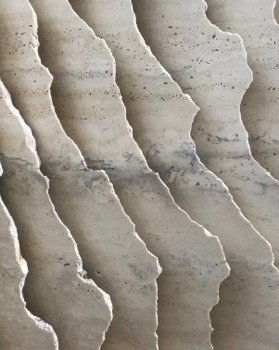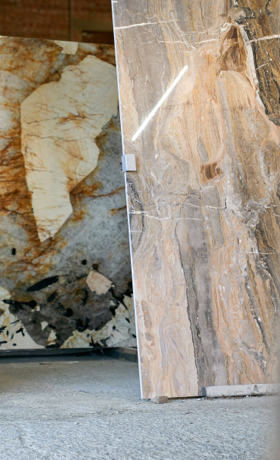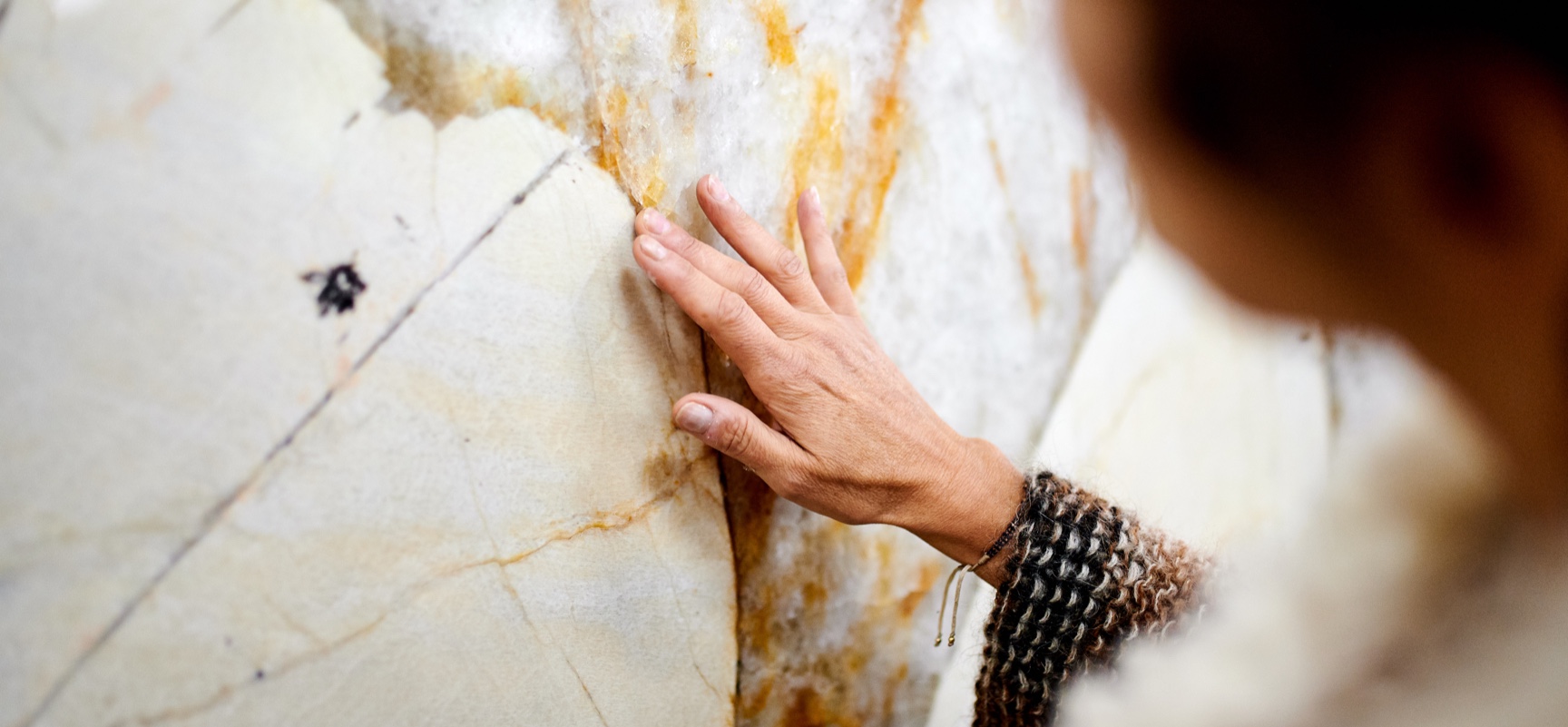Any question? Materials
-
What is the difference between the types of stone? Marble, granite, quartzite, composites and ceramic.
Our materials and maintenance section contains all the information you need to compare the different materials and find the one suits you best.
-
What does it mean to bookmatch stone slabs?
Bookmatching in natural stone is a technique for cutting and arranging slices of natural stone, particularly marble or quartzite, to create a symmetrical and harmonious visual effect.
-
Is quartz composite easy to maintain?
Yes, as long as you use the right method. Because quartz composite is an absolutely non-porous material, everything remains on the surface. The worktop should therefore be degreased after use. We recommend regular use of vinegar and white cream cif. For further information, please refer to the materials and care section via the link below.
-
What is the difference in strength between the different ceramic finishes?
Ceramic with a natural finish comes out of the oven and is therefore the most resistant to scratches and stains. The other finishes (polished and silky) are more sensitive.
-
How can I avoid thermal shock to my natural stone? Is there a high risk of thermal shock to my natural stone?
Natural stone (marble, granite, quartzite) is highly resistant to heat. However, a sudden difference in temperature can still cause thermal shock. Thermal shock is caused by a rapid and significant change in temperature. This type of sudden change creates internal thermal stresses due to differences in expansion (or contraction) between parts of the material. These stresses can lead to cracking, deformation or even breakage of the material. To avoid any risk, the use of a trivet is therefore strongly recommended.
-
Is there a maximum temperature that quartz composite can withstand?
Quartz composite brands generally indicate a maximum temperature of 149°C. Above this temperature, there is a risk of burning the surface, which will be reflected in discolouration. As it is impossible to prove whether or not this 149°C limit has been exceeded, we consider that quartz is not resistant to direct contact with a hot element. The use of an trivet is therefore compulsory.




